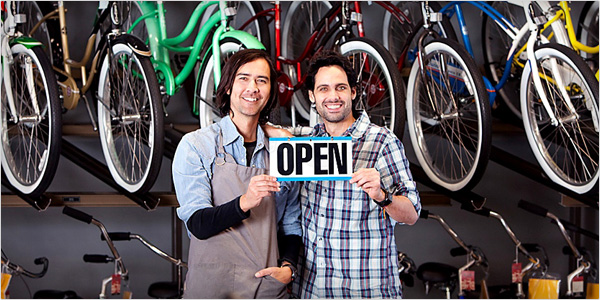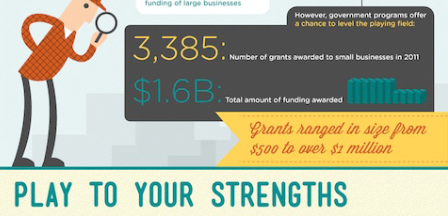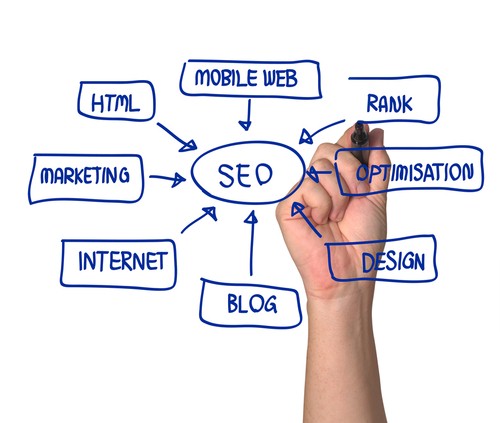 Don’t get me wrong: obviously what’s a “must have” depends on the nature of the business. A big rig truck owner operator is likely to have different technology needs than a local pizza place (or, at least, I hope. If not, I’m sure your big rig smells delicious). However, here are five important technologies that every small business should at least consider:
Don’t get me wrong: obviously what’s a “must have” depends on the nature of the business. A big rig truck owner operator is likely to have different technology needs than a local pizza place (or, at least, I hope. If not, I’m sure your big rig smells delicious). However, here are five important technologies that every small business should at least consider:
Mobile Sales Capabilities
Everything is going to mobile. According to Nielsen, roughly two-thirds of Americans own a smart phone, a number that has doubled in the past 36 months. In 2013 mobile retail sales in the U.S. increased by two-thirds to account for 13% of U.S. e-commerce sales. Globally, 40% of YouTube content is watched on a mobile device.
There are two kinds of consumer businesses: those who today have an effective mobile sales platform and those who one day will. The rest will be history. Today may not be the day that your business starts working on a mobile sales platform, but don’t put it off forever.
Web Presence / Website
Last August, Yodle released the findings from its first Small Business Sentiment Survey. According to the results, 52% of SMBs still don’t have a website. Depending on who you believe, between 60% and 70% of consumers look for local services online first. In either case, if you don’t have a web presence, you just became invisible to more than half of your potential customers. Having a website is the first step towards increasing your visibility and sales potential. We know you’ve been hearing this since 2003, but it might be time you listen.
Web Presence: Social Media

SMBs need to realize that their website does not equal their web presence. You web presence is much broader than just your website. Many more people will see you on a Google Search Engine Result Page (SERP) than will actually ever visit your web site. Two thirds of U.S. adults use Facebook and millions more use LinkedIn, Pinterest, Twitter, etc. Consumers tend to spend a lot of time on these sites … and heed to the recommendations of those they follow. Getting your name out there—and getting people to recommend you—is a relatively inexpensive way to expand awareness and increase familiarity with your business.
Again, this probably isn’t the most shocking revelation, but at the very least make sure your business information is up to date and available on Facebook, Twitter and LinkedIn. Those pages tend to rank high in search results.
Content Management System
First impressions are lasting, and for many customers their first impression of your business is your website. If your site is inaccurate or out of date or “content thin,” you’re not putting your best foot forward. In addition to making sure that first impression is a good one, high quality, up-to-date content is cat nip for search engines, who will rank your content higher and drive more traffic to your site. A good content management system makes it easier for a small business to keep its website current. Ultimately, you need to be sure that you (or someone you trust at your organization) is regularly reviewing and updating the content on your website as your business, products and offerings change.
Online Payment Acceptance
 Consumers have become accustomed to both purchasing and paying for goods online.
Consumers have become accustomed to both purchasing and paying for goods online.
Many SMBs show their products online, but have not gotten around to enabling online payment due to the technology challenges, including PCI compliance requirements.
Technology providers are making it easier for SMBs to integrate a quality online payment experience into their websites.
Things to consider when deciding upon an online payment vendor include
- Ease of integration. The vendor may have wonderful capabilities, but you need to be clear on how difficult it will be to make those capabilities available seamlessly on your website
- Breadth of payment options. You want to offer as many payment options as possible, including credit cards, debit cards, checking, etc. PayLeap even allows acceptance of gift cards EBT cards.
- Price. There can be a bewildering array of fees. Make sure you have a payment provider who is willing to be straight forward and explain your fees. We offer a free statement analysis if you want to give us a call (866-240-4158). No obligation to switch, but we can probably help you better understand what you’re looking at.
- Comprehensive. Ideally you want a payment system that works on the web, on mobile, over the phone and in your facility. Stringing together different systems from different providers can be a nightmare, even for large businesses (or the federal government).
- Mobile-capable. Of course. You don’t want to be history, do you?
- No contract. There’s no reason to let someone lock you into a 3-5 year contract. Your payment provider should earn your business each month. If they can’t, then they don’t deserve you as a customer.
Contact Us With Any Questions You Have About Online Credit Card Processing for Small Business
 PayLeap offers a mobile payment acceptance that integrates with your merchant account.
PayLeap offers a mobile payment acceptance that integrates with your merchant account.
This means that you won’t need a separate account, and we can match your mobile account rates to your merchant processing rates.
Questions? Don’t be afraid to reach out and learn more about our online credit card processing for small business.
- 31 Predictions on the Future of B2B Marketing - September 23, 2014
- Looking To Transform Your Business? There’s An App For That - February 18, 2014
- 5 Must Have Technologies for Small Business [SMBs] - February 11, 2014



